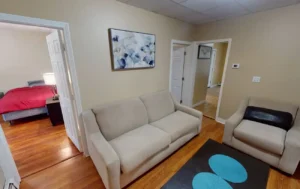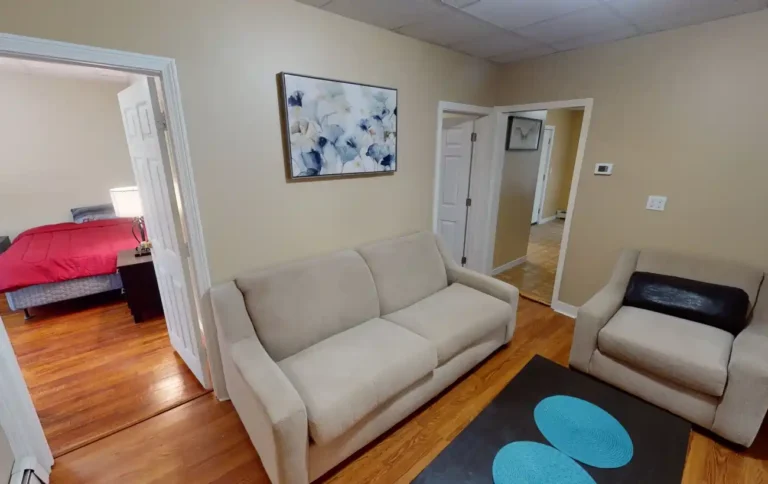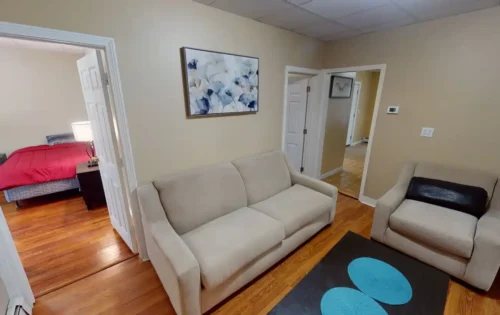
Consult a medical professional if you have trouble sticking to your plan or managing withdrawal symptoms. Some withdrawal symptoms may be life-threatening, and you’ll need a professional to navigate them safely. This personalized approach will empower you to navigate the challenges of sobriety and achieve lasting change. Most people don’t experience any physical symptoms from stopping drinking. But if you are a heavy drinker or alcohol dependent, going ‘cold turkey’ (suddenly drinking Halfway house no alcohol at all, if you are used to drinking heavily) can cause serious alcohol withdrawal symptoms.

Aftercare Support: Why It’s Essential for Long-term Sobriety
If you’re aiming to moderate your drinking, you may be asked to keep a “drinking diary”. Support is also available for family members in their own right. Living with someone who misuses alcohol can be stressful, so receiving support can often be very helpful. The therapy may be your preferred treatment option if you feel uneasy or unwilling to discuss your problems in a group setting.
How common is relapse?
Take the assessment and get matched with a professional, licensed therapist. She enjoys interviewing medical experts and researchers about their work and is passionate about communicating accurate and relevant health information to the public. If you identify with any of the scenarios above, try the expert tips below for reducing your alcohol consumption (or even eliminating it altogether). It might be helpful to choose a meaningful date like a special event, birthday, or anniversary. Emotionally, you may feel some anxiety or sadness about ending a chapter of your life and nervousness about the future.
Eat before and in between drinks.
- Tell your family and friends that you’re aiming to stop drinking alcohol and explain why.
- Determine how many drinks you’ll allow yourself, and stick to that goal.
- Your withdrawal symptoms will be at their worst for the first 48 hours.
- This guide is written for individuals—and their family and friends—who are looking for options to address alcohol problems.
- You can find like-minded and sympathetic people through support groups like Alcoholics Anonymous (AA) or SMART recovery.
If you’re a casual drinker, saying no topeer pressure may not be easy. You may see a friend who is a casual drinker say no when offered a drink and wonderwhy it’s easy for them. He or she may not needself-help tools, but those resources might work for you.

If you feel physical cravings or withdrawal symptomswhen you quit drinking, you shouldn’t try to stop cold turkey. If you’re a long-term, heavy drinker, you may need medically supervised detoxification. https://ecosoberhouse.com/ Detox can be done on an outpatient basis or in a hospital or alcohol treatment facility, where you may be prescribed medication to prevent medical complications and relieve withdrawal symptoms.
- Crystal Raypole has previously worked as a writer and editor for GoodTherapy.
- Living with someone who misuses alcohol can be stressful, so receiving support can often be very helpful.
- The person with the drinking problem needs to take responsibility for their actions.
- There is no one-size-fits-all approach when it comes to addiction recovery.
Admit that you have a drinking problem

In counseling, therapists guide people to find and replace these negative thoughts when they may happen. Whether you are struggling with addiction, mental health or both, our expert team is here to guide you every step of how to overcome alcoholism the way. Don’t wait— reach out today to take the first step toward taking control of your life.
- Whether you’re struggling or just want some extra guidance, consider reaching out for support from professionals who are trained in addiction treatment.
- Acceptance- and mindfulness-based interventions increase awareness and acceptance of present-moment experiences.
- You have the greatest chance of success if you adopt all five steps.
- Rehabilitation facilities can help you on your path to sobriety by addressing alcohol withdrawal symptoms and becoming involved in sober living support groups, like AA.
- Heavy drinkers often worry about withdrawal symptoms when they consider quitting alcohol.
- This way, you can share your successes with them, and they’ll understand why you’ve started turning down drinks or trips to the pub.
What are the principles of effective treatment?

A drinking relapse doesn’t mean you’re a failure or that you’ll never be able to reach your goal. Each drinking relapse is an opportunity to learn and recommit to sobriety, so you’ll be less likely to relapse in the future. If certain people, places, or activities trigger a craving for alcohol, try to avoid them. This may mean making major changes to your social life, such as finding new things to do with your old drinking buddies—or even giving up those friends and finding new ones. Support can come from family members, friends, counselors, other recovering alcoholics, your healthcare providers, and people from your faith community. Whether you choose to tackle your alcohol addiction by going to rehab, getting therapy, or taking a self-directed treatment approach, support is essential.
There are many options for treating alcohol use disorder without rehab, including free support groups, quitting on your own, online programs, and medication- or moderation-based programs. Unfortunately, our culture still places a lot of shame on people with substance use disorders, including alcohol. Having to tell people you are taking time off to attend rehab can be a problem in itself.

This process of rebuilding your life can be deeply empowering, helping you to reclaim your sense of identity and find joy and fulfillment in your everyday experiences. Building a support network of family, friends, and peers who understand and encourage your recovery efforts can be invaluable. Engaging with support groups, such as Alcoholics Anonymous (AA) or SMART Recovery, can provide a sense of community, accountability, and shared experiences that can bolster your resilience.
What Happens to Your Body When You Stop Drinking?
Nalmefene should only be taken if you’re receiving support to help you reduce your alcohol intake and continue treatment. Nalmefene (brand name Selincro) may be used to prevent a relapse or limit the amount of alcohol someone drinks. Naltrexone can be used to prevent a relapse or limit the amount of alcohol someone drinks. If you’re detoxing at home, you’ll regularly see a nurse or another healthcare professional. This might be at home, your GP practice, or a specialist NHS service. You’ll also be given the relevant contact details for other support services should you need additional support.

Leave a Reply